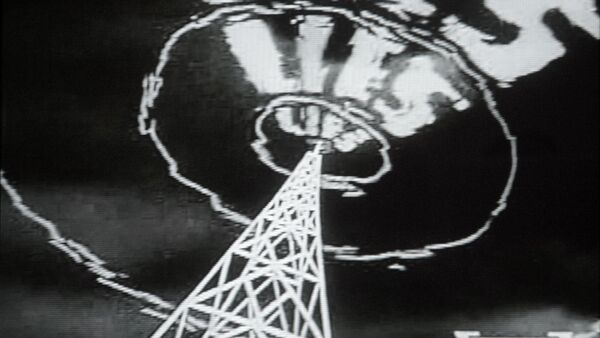Sputnik: What's your take on the purpose of this project and its effectiveness?
Jonathan Power: The purpose of the project of course is to have an influence on Russian foreign policy, mainly, [and to] some degree on Russian economic policy. This is under the counter, what some people would call subversion, and it's very difficult to know if it's effective. I guess it must have some degree of effectiveness. Otherwise the British or the Americans with their programs wouldn't do it.
Jonathan Power: The goal is to reach ordinary Russian people and tell them the other side of the story; it might be on this issue, it might be on Russian economic policy; it might be on the role of the opposition in Russia, arguing that it's being repressed or that the media is all influenced by the Kremlin; to try to sow doubt in Russian minds – the ordinary Russian man or woman in the street that something is not quite right at home; that's the purpose.
Sputnik: Would you agree with the view expressed by some analysts that this program isn't just aimed at Russia, but also at the UK and its European allies?
Jonathan Power: Yes. We know that under President Barack Obama, who was supposed to be and was in many ways a liberal force, that his government was tapping the mobile phone of Chancellor Angela Merkel of Germany. She was understandably livid, furious that there wasn't even confidence between two close allies. So this is probably just the tip of an iceberg. For all we know Theresa May is being tapped by Washington. So I wouldn't be surprised at anything.
Sputnik: What is needed to counter this? Or is this just the status quo that we have to become accustomed to? And do we need, as individuals and citizens, to try to filter the information that we're getting?
Jonathan Power: This seems to go on everywhere. Of course, there's a bigger concentration on Russia, because Russia is seen as the West's antagonist. But yes, it goes on. It goes on between allies. It shows a lack of trust even between allies. To me, on balance it's a bad thing. There is an argument that it's better to know about it and compete with it; that the West should compete with what Russia's saying and attempt to influence opinion in the European side, and vice-versa. But it doesn't take us very far, of course. It would be better if the two sides could sit down together and say 'we don't like this, and we should control it, like we control nuclear or chemical weapons.' But I can't imagine either side doing that.
Jonathan Power: I don't think it's an ideological war. Both sides now post-Soviet Union have the same ideology – the support of the capitalist system, the support of open trade and so on. No, the ambition of the West is to try and modestly subvert Russian institutions. Russia is seen as the prime antagonist of the West. The West has allowed this antagonism to develop, primarily by pushing the borders of NATO right up to Russia's borders. There's a lot of bitterness around on the Russian side, so that encourages Russia to engage in this behavior; On the Western side there is a desire to keep Russia on the back foot, and to modify if they can, Russian policies.
Jonathan Power is a veteran foreign affairs columnist, filmmaker and author with over 40 years of experience writing for the International Herald Tribune, Foreign Affairs, the Washington Post, the New York Times and other major Western publications and interviewing senior world leaders. He is also an associate of the Transnational Foundation for Peace & Future Research, an independent think tank headquartered in Lund, Sweden. The views expressed by Jonathan Power are those of the contributor, and do not necessarily reflect those of Sputnik.




